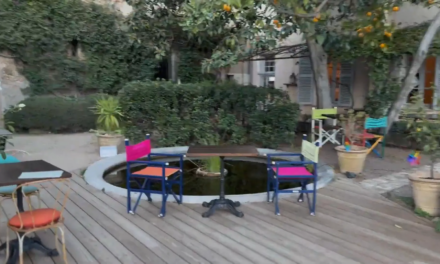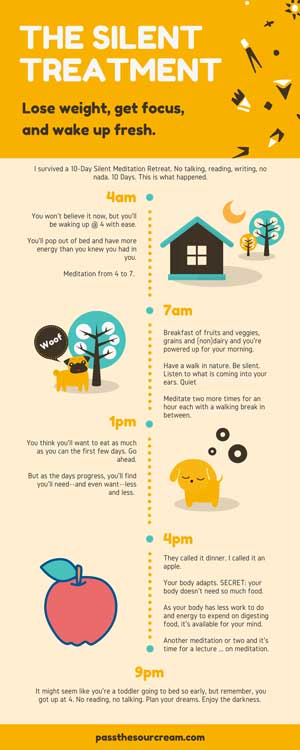
Results: What You Wish For Versus What You Want
Ever get stuck?
Or start “twirling” as I like to call it? You’re not moving forward because something’s not right. You spin in one place.
At those times, I’ve found it’s good to look more closely at our assumptions. Sometimes we presumed something, started down a path, but we can’t get past a certain point. We can feel something stopping us but we can’t quite see what it is.
As a marketing writer, I help unstick people all the time. The right words at the right moment are magical twirl-stoppers, and interview questions give clients pause to rethink.
We don’t always need to be so analytical, but examining the subtle things you’ve accepted as true often lets you see how to remove a trap you might not realize you set for yourself. It can be a “Eureka!” moment.
You can do this for yourself with a couple of my favorite wise sayings.
1. Just because something is simple doesn’t mean it’s easy.
Anyone who has poached eggs, done pull-ups, tried for hours to rock a crying baby to sleep, or struggled to say I love you, certainly gets it.
If you’re ever twirling on how fast something should go, how stupid you feel, or how troubled you are by something when it should be simpler, contemplate this for a while. Hard things can often be simplified, and that’s good, but remember to honor their inherent difficulty, for you or for others.
2. There’s a difference between what people want and what they wish for.
In business and marketing, we talk about finding people’s pain and solving their problems. Let’s remember that they want solutions to their problems, but they wish to be pain-free.
Huh? I often think for those trying to make it on their own as entrepreneurs, hitting on all these points with the right messaging for the perfect targets in a narrow-enough market could start to seem impossible…there are so many pains, after all.
So, let’s look at the repossibilities.
Examining the difference between wants and wishes can quickly stop you from twirling.
In my experience, what people want is solutions. Tools. The Goods. Knowledge. A way. A place. A process. Stuff they can have or do:
My husband wants a new TV and to get out of credit card debt. I want a Vegas vacation and a thriving Internet business and also no more debt.
What people wish for is results. What happens after we have the tools, the goods, the knowledge, a way, a place or a process? What does that look like, what will I be then?
So, how can someone best sell my husband a new TV, or me a way to help my Internet business thrive? If they they’re seeking ways to market to our wants, they can easily get stuck. Why?
Wishes trump wants every time.
That means results trump solutions. Sure, my husband might have a little pain because he doesn’t have the coolest TV, or the biggest, sharpest picture for our Super Bowl party. Every marketer goes there.
But guess what? Current TV works great.
See, you can want cool features and even a better watching experience. But you can’t wish for much with a new TV when your old one is fine, unless it’s the pure luxury of material gain … or somebody is compensating for something. No sale here, but for others, the wishes are the better way.
Boys do love their toys, but let’s not start comparing screen sizes,. Because we also have other wishes. The result of no more debt is an earlier retirement for us. The result of getting the TV…impressing friends and family? C’mon. No comparison.
Getting Past Geeks and Royals
I began teaching Pilates a long time ago, when there were by far mostly new students.
As popularity grew, so did number of training methods coming out created by various elders, and companies producing equipment, certifications, conferences, videos, etc.
Soon we had all these (as I affectionately named them) Pilates Princesses and Pilates Geeks prancing around the planet. With perfect posture. They were the students who knew enough to be dangerous (who are you certified with?) and teachers who acted as if it was something other than exercise (only the classical method will do so pay me $3,000 and study this for 500 hours). Then, the inevitable.
The bubble burst. The rise in new students leveled off, because A) Madonna and Jennifer Aniston didn’t care anymore and B) Good instruction became very pricey because the trainers were charging so much because they had paid the Masters so much to be so awesome at being awesome.
Yet still, Pilates is exercise. There is large market of potential students who don’t care about neutral spine, the pelvic clock, lateral breathing or a pedigree, like the Pilates Geeks and Princesses do. (By the way, I’m one of them–no disrespect!) Many were left unserved because the Pilates community as a whole focused too much on wants and forgot about wishes.
New prospects want RESULTS.
It’s a perfect sell in fitness, and it can stop you from twirling about what to offer, too.
Only geeks and princes (being fair to both genders) care about glycogen, ATP and the anaerobic threshold. Everyone else wants you to tell them what to do so they can (wish alert:) fit in their suit again by Christmas.
Now let’s say you help people with their website development, and you can offer advice on various platforms for WordPress that new prospects might consider. If you speak the same language as people who care about something called WOO Canvas and what it has to offer, then you’re bound to start twirling when you try to sell to me.
Possible: Find my pain and try to sell me the solution I want.
Yes, I have a site and need a theme. Yes, I want good advice and the simplest, functional solution possible that will meet my needs.
Impossible: You’re stuck because I’m not buying your solution even though it appears to be/have/do what I want.
How to do this myself and why WOO Canvas works better than blahblibbiddy blah? I don’t like it. I’ll never care why, or even how. I won’t spend $200 trying to learn. It might be a great value, but it’s hard for me. (It might be simple but that doesn’t make it easy, remember?)
If it’s going to be hard on me, and I don’t care or don’t like it, I’d rather not pay. Just as you might go for brisk walks, do sit-ups and push-ups, and cut back on the mayo, versus learning the ins and outs of Pilates technique. It’s not impossible, though. It seems like you want Pilates, when all you really wish for is less back pain and a better sex life.
Repossible: Learn what I wish for. RESULTS. Sell those.
To beginners, those results look like flexible spines that don’t get painfully injured while enjoying the activities one misses. Or working websites that do what I want mine to do while I am free of the hassle of learning how and why that works.
How much for that again? *reaches for wallet*
[fusion_builder_container hundred_percent=”yes” overflow=”visible”][fusion_builder_row][fusion_builder_column type=”1_1″ background_position=”left top” background_color=”” border_size=”” border_color=”” border_style=”solid” spacing=”yes” background_image=”” background_repeat=”no-repeat” padding=”” margin_top=”0px” margin_bottom=”0px” class=”” id=”” animation_type=”” animation_speed=”0.3″ animation_direction=”left” hide_on_mobile=”no” center_content=”no” min_height=”none”]

Is that what you want or what you wish for?





























Trackbacks/Pingbacks